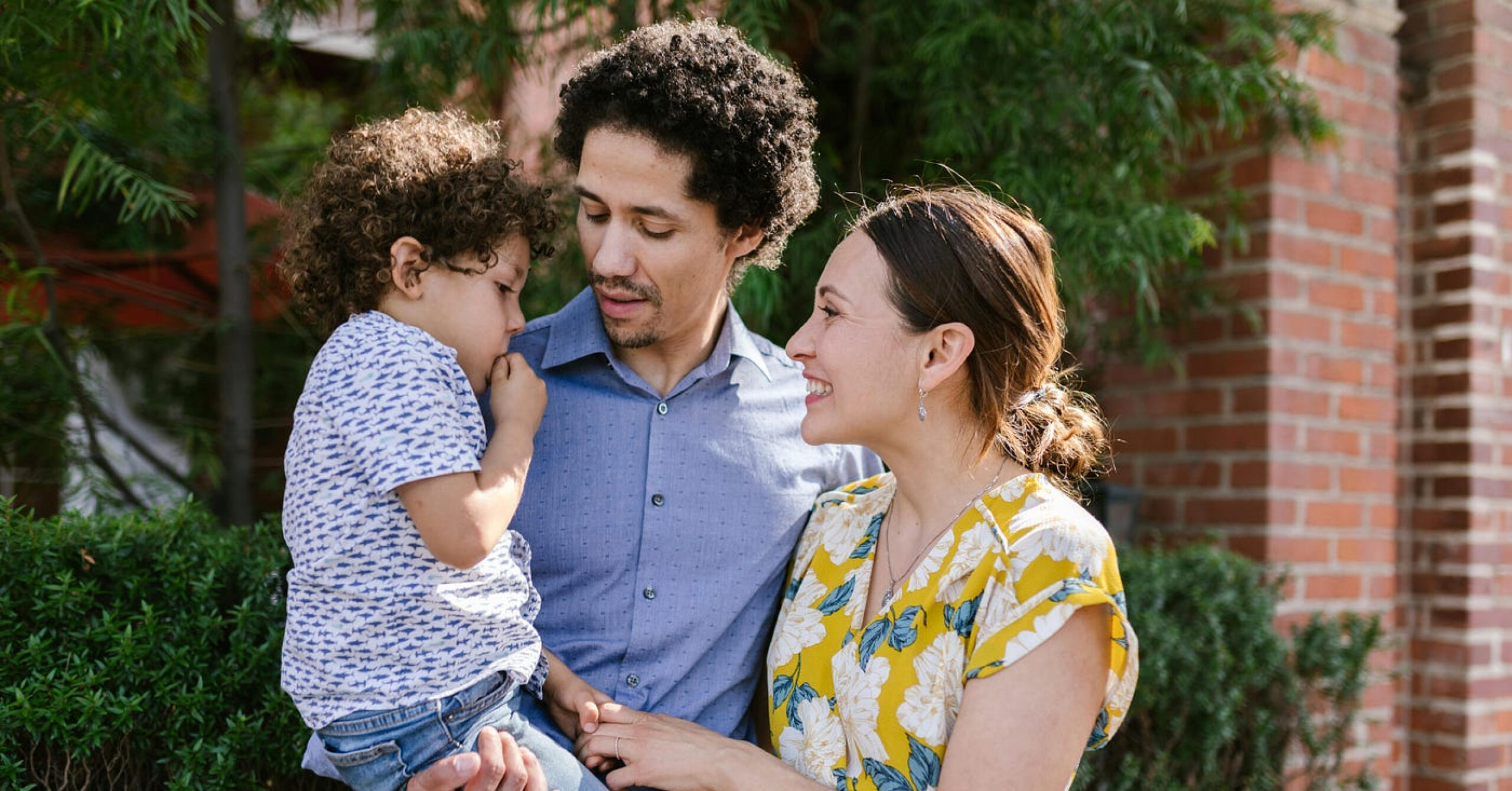Nobody wants kids to feel caught in the middle of a custody battle. Fortunately, parents can protect their children from the negative impact of a litigated child custody case by choosing mediation. They will stay in complete control of their children’s future.
Custody mediation offers a collaborative approach to resolving disputes while preserving the children’s well-being and minimizing tensions between the co-parents. And research shows that parents have better long-term relationships with their kids when they mediate.
This article will explain child custody mediation and its benefits compared to engaging in a court custody battle. We’ll conclude with a few quick tips to make your mediation meetings as productive and healthy as possible.
What is child custody mediation?
Child custody mediation is an out-of-court approach parents use to reach agreements on Parenting Plan issues, including their children’s legal and physical custody.
During mediation, a third-party mediator facilitates productive conversation between the parents and ensures every issue regarding custody is resolved in a way that they both feel is best for their children.
Custody is often one of the most sensitive issues in a divorce. In mediation, the children’s needs are at the forefront of every conversation. Mediation can help reduce conflict, allowing for calmer and more thoughtful discussions between parents.
As a result, child custody mediation is healthier than litigation for both parents and their children. More often than not, parents want to work together with their children’s well-being in mind rather than attempting to “win” at all costs, like in litigation. Parents are more satisfied with the agreements they reach in mediation, and they help protect their kids from the emotional and psychological harm of a court battle.
What types of issues can child custody mediation help resolve?
Child custody mediation helps resolve all issues regarding children and their well-being.
To begin, it is helpful to know that there are two main types of custody:
- Physical custody refers to who will take care of the children on a daily basis. For example, Mom or Dad may share physical custody (i.e., parenting time) equally. Many parents share equal time with their kids. In a case where one parent has the majority of time with the children, they may be designated as the primary residential parent.
- Legal custody refers to who will make major decisions for the children. One or both parents can have legal custody.
- Joint legal custody is when both parents have legal custody and share the rights and responsibilities to care for and make decisions for their children.
- Sole legal custody, which is less common, is when one parent gets legal custody based on specific reasoning — ensuring this approach is in the children’s best interests.
Many issues are discussed during custody mediation, including:
- the children’s daily living arrangements, known as “parenting time”;
- visitation schedules for holidays, school breaks, and other arrangements (parenting time, holidays, vacations, etc.);
- custody exchange details and arrangements (pick-up, drop-off, transportation costs, communications regarding temporary schedule changes, etc.);
- the children’s educational needs;
- the children’s extracurricular activities;
- the children’s healthcare/medical care, including insurance, expenses, and visits to healthcare providers;
- childcare responsibilities for times when both parents are busy;
- parental communications;
- relevant financial matters, such as child support;
- changes in circumstances, such as job changes, availability changes, or relocation; or
- extended family visitations with the children.
Every situation is unique, so any other matters related to the children may also be discussed during custody mediation.
|
Advantages of custody mediation
Child custody mediation is an opportunity for parents to prioritize the health and well-being of their children. Private mediation is more affordable and less stressful than “lawyering up,” and it also has a higher success rate.
Below, we will look at some of the benefits of negotiating parenting agreements and resolving child custody issues in mediation.
Protects your children’s mental health and well-being
During custody mediation, the best interests of the children are the priority. The child custody mediator works with both parents to help them reach an agreement that addresses all of their concerns and — more importantly — protects the well-being of their children.
Mediation reduces the level of conflict and makes the negotiation process easier.
Children benefit immensely from seeing their parents cooperate and are less likely to feel at fault for the divorce or separation. Thus, mediation can avoid the risk of psychological and emotional harm that often comes with trying to resolve a child custody dispute in court.
In mediation, children do not need to attend meetings, testify in front of strangers, or take sides. Additionally, they are not subject to psychological evaluations ordered by a judge.
Less parental conflict
As we mentioned earlier, a custody mediator takes a collaborative approach rather than pitting parents against each other. The mediator does not represent either parent but rather ensures that both have an equal voice in crafting their child custody agreement.
As a result, both parents will know that their needs are being taken into consideration as they negotiate specific issues.
Your custody mediator can help you build a stronger co-parenting relationship, which benefits your children and leaves you less stressed. Imagine your children seeing their parents work together rather than against each other. Imagine them looking up to you for putting your differences aside and focusing on what’s best for them.
Choosing mediation is choosing to prioritize the needs of your kids every step of the way. Mediation can help you both begin to see yourselves as co-parents more than anything else.

Saves time and money
Divorce attorneys charge high rates and typically bill hourly. Months-long, drawn-out litigation can cost an ever-increasing amount of money.
Litigation’s extended timeframe can require parents to take time off work and potentially lose out on income or advancement opportunities — making the process even more stressful.
In mediation, the process can take as little as two to four months to complete. In some cases, it might only take one or two meetings to reach all agreements.
Mediation also costs less than litigation. This is especially true if you work with an Aurit Center Certified Mediator, who charges a predictable flat fee. You won’t feel rushed to agree to a Parenting Plan that you aren’t happy with — you have all the time you need to feel good about your personalized agreements.
It’s also easier to schedule meetings at your own pace, and Aurit Center Certified Mediators offer online mediation for your convenience. With litigation, on the other hand, a family court has limited availability and will pick dates and times that are most convenient for them.
Ultimately, mediation allows you and your co-parent to stay in control of your timeline and gives you the flexibility to return to your responsibilities more quickly.
Confidentiality
During litigation, custody-related matters are discussed in front of the judge, attorneys, trial attendees, and complete strangers. These matters become part of the public record. Anyone, including your children, grandchildren, or relatives, can access them upon request.
Mediation keeps all custody-related discussions between you, your co-parent, and the mediator. Everyone’s privacy is protected, and information from mediation can’t be used against you at a later date.

Quick overview: the child custody mediation process
Preparing for mediation
A little preparation can make the process faster and smoother. It can be helpful to:
- Write down what you believe is an agreeable parenting schedule. This can give you a starting point for discussion, and you and your co-parent will be able to personalize your plan in mediation so it meets your family’s needs.
- Gather the relevant information. Your Aurit Center Certified Mediator will send you an online Mediation Questionnaire to help you gather and organize important information.
- Get a good night’s sleep the night before. Being well-rested can improve your mood and energy during the mediation meeting and help you more easily process the emotions that may accompany the discussion of sensitive topics.
- Getting in the right state of mind. Feeling a variety of emotions during sensitive conversations is normal. Be kind to yourself and your co-parent during this time, and remember that you both feel this way because of how deeply you care about your kids. Set a goal of bringing your best self to these important conversations.
The mediation meeting
At the start of mediation, your Aurit Center Certified Mediator will establish ground rules for respectful conversation. They will also create a comfortable and respectful environment for each of you to propose ideas and solutions.
Your mediator will work to ensure that you have an equal opportunity to express your interests, priorities, and concerns. They will listen to both of you and then help identify potential points of agreement based on what you each expressed.
Your mediator will ask questions to gather as much information as possible about the children, such as their school schedule and daily routine. Once they have all the information they need, they can lead a discussion between you and your co-parent.
During mediation, your mediator will help you brainstorm ideas and give you both an equal part in exploring options and working toward agreement on all issues.
The mediator will work to bring the discussion back on topic if issues unrelated to the children and the parenting plan arise. For instance, if parents begin talking about what happened in their past to cause the separation and their discussions are not productive in the meeting, their Aurit Center Certified Mediator will guide the conversation back to the topic at hand.
While children don’t attend mediation meetings, the mediator helps to keep their voice and best interests front and center by framing the conversation around their needs.

Mediation can resolve simpler cases in just one to two meetings. More complex cases may require additional meetings, but the overall time and money spent will be far less than what would be spent in litigation. Mediation can take just a couple of months to complete, while litigation can take several years.
The child custody agreement
Your mediator will make sure that you have addressed all necessary topics. Once you and your co-parent have reached an agreement on each topic, the mediator will carefully walk through them one by one to ensure that you both understand and agree with the solutions reached.
If points for further discussion are identified during this review, the mediator facilitates revisions until both parties find common ground on the outstanding topics.
Once everything is satisfactory, your mediator will document the agreements and plans. You and your co-parent will sign your agreed-upon plan, and it will be submitted to the court. If either of you prefer, you are welcome to have an attorney review the documents with you in order to advise you before signing.
Following the agreement
The court will review your submitted agreement, and it will be signed by the judge upon their review and approval.
Mediated agreements are more often followed since both spouses participate in crafting them. You and your co-parent will follow your bespoke plan rather than a plan a judge “forced” on you.
If questions or confusion around aspects of custody arise, co-parents can reference the plan to clarify the matter and can seek help from their mediator if necessary.
Both co-parents can follow up with their mediator regarding complex issues or concerns. Furthermore, adjustments to the Parenting Plan are often necessary as the children grow and their needs change. The mediator can facilitate these modifications.
For instance, once a child begins to drive, the parents’ terms regarding pick-up and drop-off may change.

Another example would be if a child switches daycare centers, and the agreement must be modified to include details about the new facility and the child’s new daycare schedule.
Tips for a productive custody mediation process
Mediation is a much healthier way to resolve custody issues than litigation. That said, here are a few tips for your mediation to go as smoothly as possible:
Prioritize your children’s needs
Mediation is all about the children. If you and your co-parent are married, additional topics will be discussed during your divorce mediation process. These conversations are not always easy, but remember that you are having them to benefit your children.
After all, focusing on the children ensures their unique needs are met and their well-being is maintained.
Stay open to compromise
Come with an awareness of your needs, staying open to compromise and cooperation. Mediation aims to reach mutually beneficial agreements while protecting your children (a win-win-win).
Winning in litigation, on the other hand, creates resentment in one or both parents, and the increased resulting conflict can cause emotional and psychological harm to your children (a “win”-lose-lose is truly an “everyone loses” scenario). A negative co-parenting relationship can significantly reduce the quality of everyone’s lives.
Thus, some compromising benefits everyone–especially the children
Maintain open communication
Using professional language as your guide is very helpful: speak as you would in any professional meeting, avoiding inflammatory language. Do your best to be empathetic, even when it’s difficult, and try to see things from your co-parent’s perspective. Consider how you would like to be treated during these conversations, and remember that your co-parent will be more willing to treat you with respect if they feel that respect is reciprocated.
This can help you frame your proposals to benefit you, your co-parent, and your children. As a result, you reduce the chances of an increase in tension, which helps everyone involved.
Trust The Aurit Center for your mediation needs
Child custody can be one of the most challenging issues for parents — but it doesn’t have to be.
Mediation shifts the focus to the children’s best interests by facilitating discussion and prioritizing cooperation and collaboration between the co-parents.
Aurit Center Certified Mediators provide a space for both parents to bring their concerns and reach an agreement that benefits their children. This can help resolve custody issues more quickly than litigation, reducing conflict, saving time and money, and securing the children’s happiness and stability.
Schedule a free consultation with us to explore how we can help you and your co-parent find the best arrangement for you and your children.





